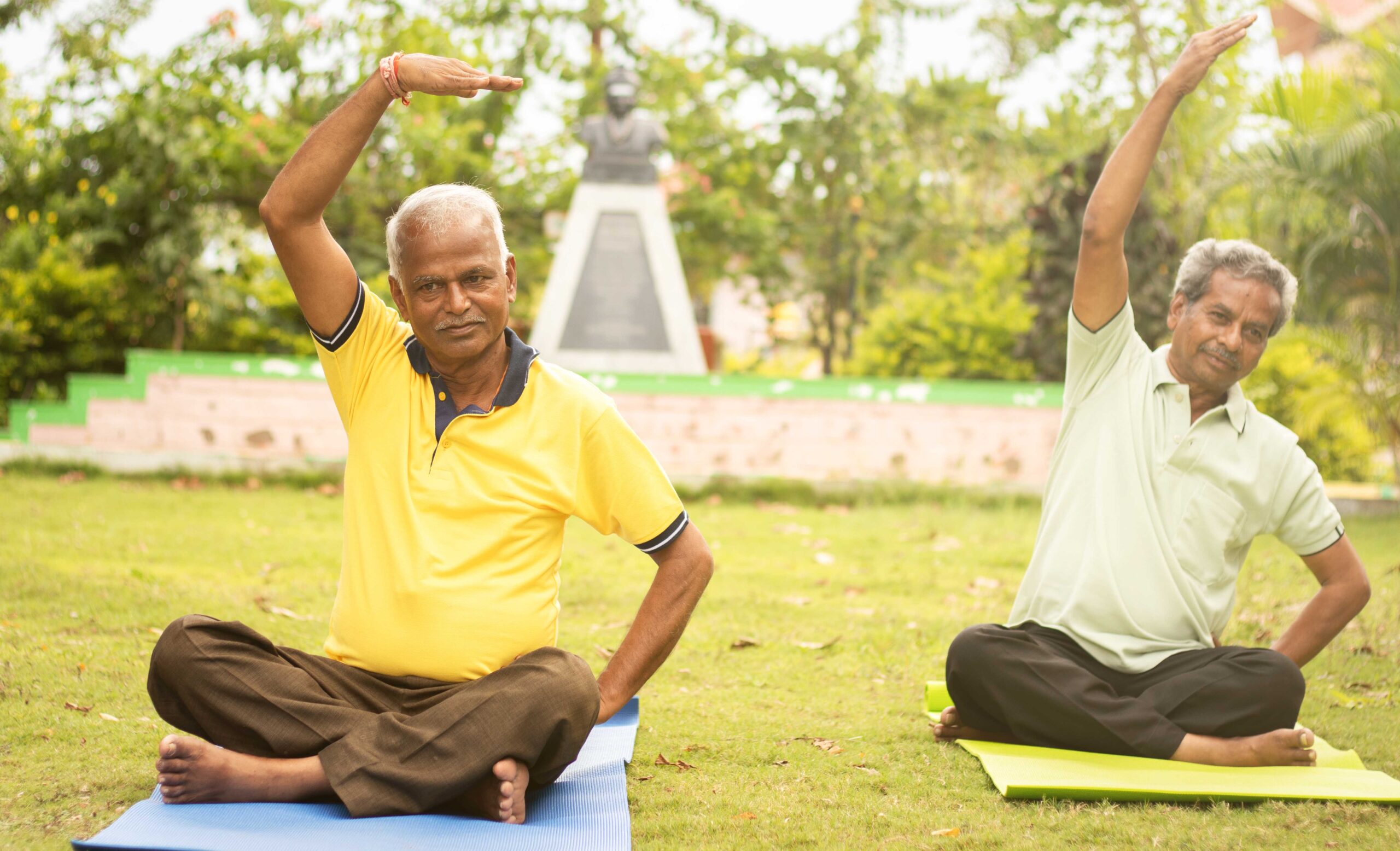Did you know that exercise can help ward off or delay the onset of dementia?
Gireesh Kumar B explains
Physical exercise is an important part of a healthy lifestyle, contributing to general fitness, muscle control, and coordination, and to a sense of well-being. Physical exercise is also essential for maintaining adequate blood flow to the brain and may stimulate brain cell growth and survival. Exercise is, therefore, one of the major factors for reducing the risk of developing dementia. Several studies have found that physical activity in early, mid and late-life is associated with a lower risk of cognitive decline and dementia.

people with dementia
The benefits of exercise are clear when considering other factors associated with the risk of developing dementia. People who exercise regularly are less likely to experience heart disease and stroke, both factors that are associated with an increased risk of developing dementia. Exercise is also important in reducing the risk of high blood pressure, type 2 diabetes and obesity, all of which are risk factors for dementia. Regular aerobic exercise, walking, at least 30 minutes, is beneficial for cognitive health. Exercise may improve blood flow to the brain, reduce cardiovascular risk factors and possibly stimulate nerve cell growth and survival.
Benefits for dementia patients
Physical exercise should be continued for as long as possible for people with dementia, as it has been found to have a number of benefits. It can help prevent muscle weakness, mobility problems and other health complications associated with inactivity. It can help promote a normal day-night routine, improve mood and increase social participation.
Exercise also plays a part in reducing stress and depression, which are commonly experienced by people with dementia. Repetitive activity such as walking on a treadmill or using an exercise bike can help reduce anxiety for people with dementia as there are no decisions to make or things to remember about what to do next.
An exercise program incorporated into a person’s lifestyle in the early stages of dementia is more likely to be maintained as the condition progresses, extending the benefits to health and well-being for as long as possible.
In moderate to late stages of dementia, support and encouragement from family, carers and service providers are important to ensure that an exercise program is maintained. Accessing a structured exercise program with trained staff and using family, friends, and volunteers can help to ensure this.
Most effective exercises
Resistance or weight training involves exercising muscles against an external force that provides resistance to the movement.
Flexibility and balance exercises strengthen the spine and supporting muscles and improve coordination and balance.
Aerobic exercises are defined as exercise performed at a moderate level of intensity over a long period of time. It improves general physical health and increases blood flow to the brain. Examples of aerobic exercise are brisk walking, dancing, jogging, bicycling and swimming.

disease and stroke, both factors associated with an increased risk
of dementia
Seated exercises
People with dementia can benefit from a regular program of seated exercise sessions. These exercises are aimed at building or maintaining muscle strength and balance and are less strenuous than exercises in a standing position. Some examples of seated exercises include:
- Turning the upper body from side to side
- Raising the heels and toes
- Raising the arms towards the ceiling
- Raising the opposite arm and leg
- Bending the legs
- Clapping under the legs
- Bicycling the legs
- Making circles with the arms
- Practicing moving from sitting to standing
Other activities

help strengthen the body’s muscles and improve breathing
If exercises are boring, these physical activities can be incorporated into a person’s lifestyle.
Gardening: Gardening activities may help strengthen the body’s muscles and improve breathing. Gardening can be an enjoyable activity for people at all stages of dementia
Dancing: It can increase strength and flexibility, help with staying steady and agile, and reduce stress.
Swimming: Swimming, under supervision, is a good activity for people with dementia. Many people find the sensation of being in the water soothing and calming.
Walking: Walking suits all abilities. It is free, does not need specialist equipment, and can be done anywhere.
It is important to seek advice from your physiotherapist on what type and intensity of exercise is best suited to you.



